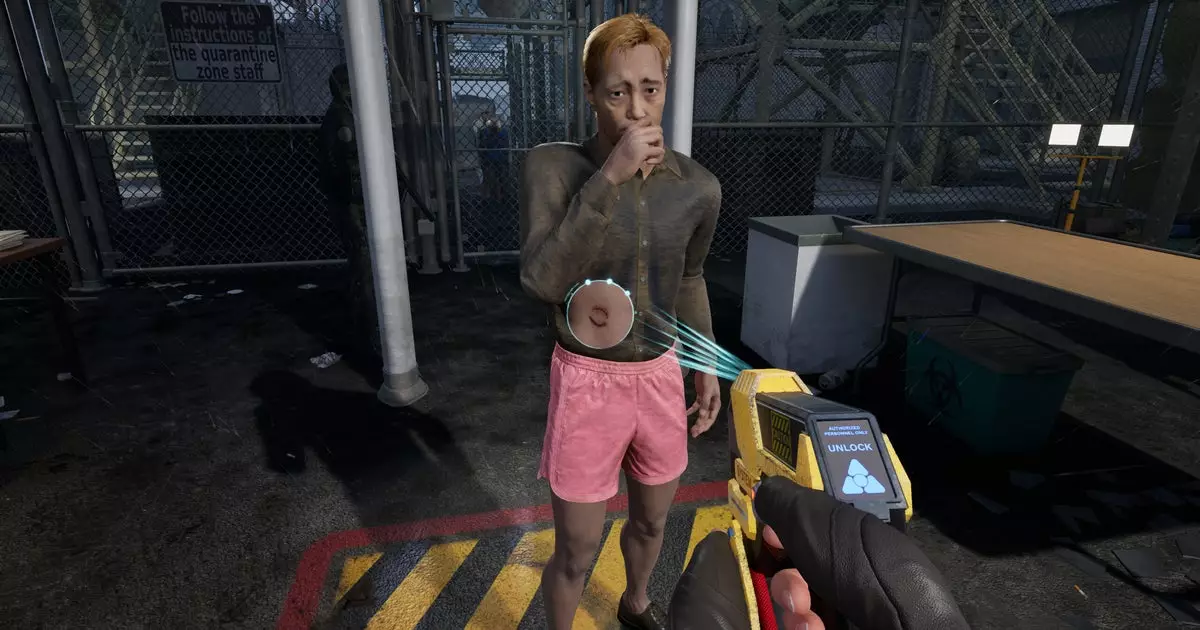In the dystopian landscape of quarantine and contagion, the role of the gatekeeper transcends mere security. Beyond the surface of processing refugees and safeguarding borders lies a complex web of moral dilemmas, institutional flaws, and human vulnerabilities. The game “Quarantine Zone: The Last Check” encapsulates this tension brilliantly—not just as a survival simulator but as a mirror reflecting contemporary debates about authority, morality, and the essence of compassion in crisis.
Contrary to the simplistic portrayal of government checkpoints as infallible bastions of security, the game forces players into the uncomfortable position of making instant judgments. Every decision to admit, quarantine, or reject a person involves weighing incomplete information and under-staffed resources. That seemingly innocuous individual with a slight fever could be infected; the frantic mother clutching her child might be just overwhelmed. These nuances challenge players to see beyond binary choices, echoing real-world dilemmas faced at borders and quarantine facilities amid health crises, refugee influxes, and national security concerns.
The mechanics of inspection—utilizing UV flashlights, thermometers, and other diagnostic tools—serve as a potent metaphor for modern surveillance. In a world increasingly reliant on technology to determine innocence or guilt, the game explores how tools of detection are both invaluable and fallible. It raises questions about trust: How much evidence is enough? When does suspicion become profiling? The game’s nuanced scenarios invite players to confront the uncomfortable truth that certainty is often elusive, and compassion must be balanced against safety.
Strategic Morality and the Illusion of Control
“Quarantine Zone” challenges players to navigate this moral minefield while managing limited resources and defending against relentless zombie hordes. This dual gameplay—inspection during the day and defense at night—creates a layered experience of constant tension. It underscores an uncomfortable reality: in crises, leadership is often reduced to rapid-fire judgments and strategic sacrifices.
The game’s resource management aspect epitomizes the scarcity that defines survival—whether it be test kits, medical supplies, or personnel. Every decision to conserve or deploy resources reflects a broader commentary on governmental and societal priorities in times of emergency. Do we allocate everything to quick fixes, risking long-term stability? Or do we prioritize long-term safety at the cost of immediate chaos? Such questions resonate with contemporary debates about public health policies, border control, and the rationing of aid.
Yet, lurking beneath the strategic veneer is an unsettling suggestion that these choices—though framed as procedural—carry profound moral weight. The decision to quarantine a suspicious individual or to eliminate a potential threat becomes a reflection of the player’s values, exposing how fear and necessity can distort morality. The game subtly urges players to consider: Are we truly defending order, or are we merely suppressing chaos at the expense of our humanity?
Questioning the Foundations of Authority and Compassion
Amidst the chaos, “Quarantine Zone” also prompts critical reflection on authority and moral responsibility. Is the checkpoint merely a faceless barrier, or does it embody the collective moral fabric of society? The game’s depiction of inspectors as hardened, sometimes ruthless, figures highlights the dehumanizing aspects of institutional power. Yet, it also reveals that compassion, patience, and understanding are vital to meaningful leadership, even in the bleakest moments.
The playful, absurd aside about distinguishing whether someone is Buster Keaton or Barney the Dinosaur dismantles the game’s grim premise and injects a dose of humanity—reminding us that sometimes, fear of the unknown leads to superficial judgments. But this humor also underscores a vital point: stereotypes and surface appearances can obscure genuine human stories. When players are encouraged to look past the masks and inspect the core of each individual, they confront their own biases and assumptions.
In a broader societal context, the game becomes a commentary on how fear and suspicion can erode empathy, leading to policies and actions that haunt us long after the immediate danger passes. Its reflection on authority, morality, and human fallibility is a powerful reminder that even in times of chaos, the core values of compassion and fairness should not be abandoned.
—
“Unmasking Humanity” distills the essence of “Quarantine Zone” as not merely a game but a profound exploration of moral resilience. It challenges us to consider how we exercise authority and uphold empathy when the world we know is falling apart. At its heart, it asks: in the face of uncertainty and peril, are we guardians of safety or protectors of our shared humanity?

